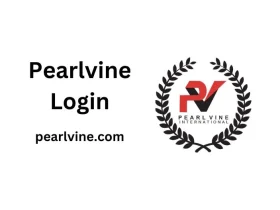Digital marketing trends are changing at a breakneck speed. We’ve now moved into a new phase, with a greater focus on personalization, consistency, and technology.

Small companies that are innovative are using new technology to contact clients when and where they want to be reached, in a way that makes them feel unique. These digital marketing trends are not to be missed if you’re seeking new methods to boost your marketing and get a competitive advantage.
Digital Marketing trends
- Digital Marketing using AI
A number of new technologies have lately hit the market that allows you to discover trends in enormous volumes of data and transform them into actionable insights. Several systems, ranging from Salesforce’s Pardot to Adobe’s Marketo and LOCALiQ’s LOCALiQ, allow you to access amazing processing power to accelerate your marketing.
One thing to keep in mind is that AI does not always determine your decision for you. Rather, it examines the trend of the data it receives to make suggestions that used to take months (or longer) to work out—things like whether a specific ad approach is effective or when the best moment is to contact a positive transition.
AI shortens the operation and spares you money by assisting you in looking deeper down the road so you don’t waste time and money on a dead-end plan. Most significantly, because it develops as it goes, the further you get it, the more effective it grows, so having begun immediately is critical to your success.
- WiFi Promotion
Free public WiFi is already expected as part of the consumer experience. We’re no longer in a position where it’s considered a benefit. So, how can you help ensure that the agreement benefits your company? WiFi marketing allows you to not only meet a client’s demand by providing a connection but also to do more of it.
Smart marketing isn’t just about gathering data or following the newest digital marketing fad; it’s also about recognizing how that data is useful in circumstances. You use your free WiFi to gather information in order to make recommendations to consumers that join your network using WiFi marketing.
The benefit of this approach is that you already know your target has viewed your physical address, so even if they didn’t purchase anything, they’ve already made more steps than anyone you’d target on Facebook, Google, or other traditional advertising platforms.
You also can monitor how many instances they’ve decided to visit, how long they’ve remained, and more if you have the correct system in place. The key is to provide them with an offer at the proper time in order to convert them.
- Agile Marketing
The Agile Framework has transformed how software teams collaborate to bring the greatest product to market. The Agile Manifesto was written in reaction to a top-down development environment in which each project was leveled out in minute detail and then built by many teams running concurrently but never producing a functioning product until everything was in place.
This technique had a number of flaws, ranging from combining work from separate divisions with various design principles to developing a product without knowing how or why a client would use it.
As a result, Agile Programming focuses on quick iteration, which entails producing software in tiny, consumable chunks that can be evaluated with the intended audience to check if it works as planned.
Agile marketing modifies these marketing ideas in approaches that you may use in your small firm. The aim is to zero down on the elevated marketing initiatives that offer the most logic to finish and to try them out with a view to repetition.
Rather than concentrating on executing a large marketing campaign, divide it down into individual, more manageable chunks. Examine whether or not it’s truly working at each level of your execution and make any adjustments.
If your email campaign fails to appeal to the people, you’ll need to take extra time revising your messaging before putting additional effort into social networking sites, for instance.
- Personalization
Our smartphones retain our interests for a variety of things, including who we follow on media platforms, our home location, and the restaurants where we usually get takeout.
We demand the same from our marketing, which should make no difference. When it comes to marketing to those who want to purchase from our company, the stakes are higher.
The idea is to concentrate on individualization. That entails looking closely at not only how your clients arrive at your website, but also the other information they left behind.
How did they track you down? How do people usually find their way to your website? Look for these key indicators and you’ll be capable of figuring out how to reach out to them with a compelling proposal.
- Social Media Marketing That Is Smarter
Whether you like it or not, social media marketing is a vital part of most small company marketing strategies, a hot topic in digital marketing, and maybe the simplest method to contact your clients.
The issue is that there are numerous various ways to contact individuals, and it’s sometimes uncertain which is the most efficient approach to locate them in a location where they’re likely to be converted.
If you haven’t already, take the time to complete a client avatar project to gain a better understanding of who you’re addressing and why. You’ll need to spend time on various social media channels based on the age group you’re targeting.
Facebook’s user base is old, while Instagram’s is newer, with Twitter falling somewhere in the middle. Take the time to learn where your target audience congregates, and then devote time and resources to contacting them where they already congregate.
- Stories from Social Media
One of the most prominent social media trends is a focus on stories rather than individual postings. Smart firms are capitalizing on this trend, leveraging tales to provide backstage access to a curious audience and foster a deeper engagement with their customers. While stories are less persistent than other sorts of postings, they do have the important feelings of apprehension factor than standard posts lack, allowing you to stand out.












Leave a Reply